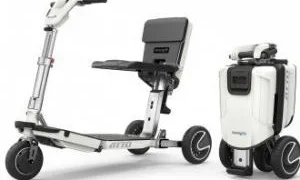Many people rely on point-of-use filters, such as those attached to faucets or pitchers, plumbers often recommend a more comprehensive solution: a whole-home water filtration system. These systems treat water at the point of entry, ensuring every tap in your home delivers filtered, high-quality water. Here’s why plumbers believe this investment is worth considering.
What Is a Whole-Home Water Filtration System?
A whole-home water filtration system, also known as a point-of-entry system, filters all the water entering your home. Installed at the main water line, it treats water before it reaches your taps, showers, and appliances. These systems can address a variety of water issues, such as sediment, hard minerals, chlorine, and contaminants like lead or pesticides.
Benefits of a Whole-Home Water Filtration System
1. Improves Water Quality Throughout the Home
Plumbers emphasize the importance of having clean water not just for drinking but also for bathing, cooking, and cleaning. A whole-home system ensures that every tap delivers water free from harmful contaminants and unpleasant odors or tastes.
2. Protects Your Plumbing and Appliances
Unfiltered water often contains minerals, sediment, and chemicals that can cause damage over time. Hard water, in particular, leaves deposits that clog pipes and reduce the lifespan of appliances like dishwashers, water heaters, and washing machines. A filtration system removes these impurities, prolonging the life of your plumbing infrastructure and appliances.
3. Supports Health and Safety
Tap water may contain contaminants like chlorine, lead, pesticides, and bacteria. According to Suffolk County plumbers, these impurities can have long-term health effects, especially for vulnerable groups like children and the elderly. A whole-home water filtration system significantly reduces exposure to these harmful substances, promoting better health.
4. Reduces Maintenance Costs
Sediment and hard water buildup can lead to frequent plumbing issues, such as pipe blockages or leaks. By filtering water at the source, a whole-home system minimizes these problems, saving money on repairs and maintenance.
5. Environmentally Friendly
Whole-home filtration systems reduce the need for single-use plastic water bottles. By ensuring clean, filtered water from every tap, homeowners can ditch bottled water, reducing plastic waste and environmental impact.
Types of Whole-Home Water Filtration Systems
Different homes and water quality issues require specific filtration systems. Plumbers can help determine the best option for your needs. Common types include:
1. Carbon-Based Filters
These filters remove chlorine, volatile organic compounds (VOCs), and unpleasant odors, improving taste and overall water quality.
2. Reverse Osmosis Systems
These systems provide thorough filtration by removing contaminants such as lead, arsenic, and nitrates. Reverse osmosis systems are ideal for areas with poor water quality.
3. UV Filters
UV filtration systems eliminate bacteria, viruses, and other microorganisms, ensuring safe water for consumption and use.
4. Combination Systems
Some homes benefit from a combination of filtration methods, such as a carbon filter paired with a water softener or UV filter, to address multiple water quality concerns.
Why Plumbers Recommend Professional Installation
While some water filtration systems are DIY-friendly, plumbers stress the importance of professional installation for whole-home systems. Proper installation ensures the system functions efficiently and integrates seamlessly with your plumbing. Plumbers also provide guidance on choosing the right system for your home’s water quality and usage needs.
Maintenance Tips for Whole-Home Water Filtration Systems
To keep your system running optimally, regular maintenance is essential. Plumbers suggest:
- Replacing Filters: Follow manufacturer recommendations for replacing cartridges and membranes.
- Periodic Inspections: Have a plumber inspect the system annually to ensure all components are in good condition.
- Monitoring Water Quality: Use water testing kits to ensure the system continues to deliver clean, safe water.
Also Raed : The Role of Medical Billing in Streamlining Revenue Cycle Management
Conclusion
A whole-home water filtration system is a valuable investment for improving water quality, protecting your plumbing, and safeguarding your family’s health. Plumbers recommend these systems for their ability to address a wide range of water issues efficiently and comprehensively. By ensuring clean water throughout your home, you can enjoy peace of mind and long-term cost savings.
FAQs
1. What contaminants can a whole-home water filtration system remove?
Whole-home systems can remove chlorine, sediment, lead, pesticides, bacteria, and other impurities depending on the type of filter used.
2. How much does a whole-home water filtration system cost?
Costs vary depending on the system type and complexity but typically range from $500 to $3,000, including installation.
3. Do I need a whole-home water filtration system if I already have a faucet filter?
Faucet filters only treat water at a single point of use. A whole-home system ensures clean water throughout your home, including for bathing, cleaning, and cooking.
4. How often should I replace filters in a whole-home system?
Filter replacement schedules vary by system type but are usually every 6-12 months for carbon filters and every 2-5 years for reverse osmosis membranes. Consult your system’s manual for specifics.






































Comments 1